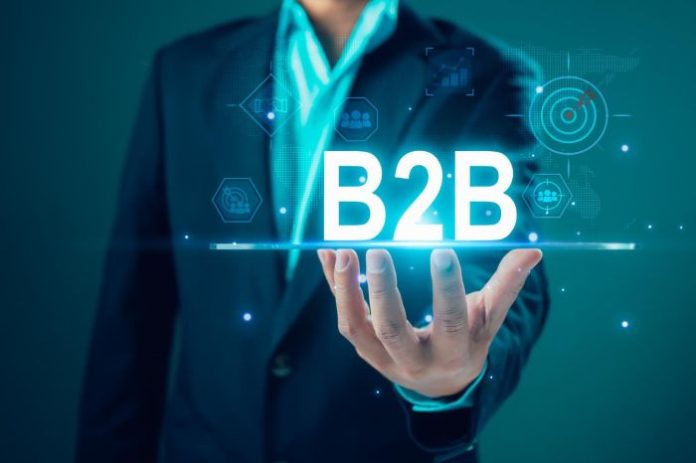Selecting the right B2B digital marketing partner can determine whether your brand merely participates in the market—or sets the pace. Great agencies blend strategy, creative, data, and technology to accelerate pipeline, shorten sales cycles, and scale revenue operations. The best teams understand complex industries and buyer committees, long consideration paths, and compliance-heavy industries.
Below is a curated, practical list of eight standout agencies, each with a quick snapshot of what they do well—plus realistic pros and cons—to help you choose a partner that fits your goals, stack, and budget.
Key Takeaways
- Choosing the right B2B digital marketing partner is crucial for success in complex industries.
- The article highlights eight standout agencies, each with specific strengths and drawbacks.
- Consider factors like RevOps integration, platform fit, and growth goals when selecting an agency.
- Effective agencies demonstrate measurable impact, tied to revenue stages rather than just traffic or MQLs.
- Ultimately, the best agency fits your maturity, stack, and objectives for optimal collaboration.
Table of Contents
Top Digital Marketing Agencies
Elevated Third
Elevated Third is a B2B growth agency known for orchestrating complex web, content, and RevOps programs that connect marketing to pipeline. They build and optimize the digital experience platform for B2B marketing—often centering on Drupal or headless architectures—and specialize in martech integration services that tie websites, automation, and CRM into a single revenue engine.
Pros
- Deep B2B specialization: ABM, buyer-enablement content, and enterprise web for long-cycle sales.
- Strong technical chops: CMS, headless builds, and data layer design that aligns with RevOps.
- Integration-first mindset: marketing automation and CRM connected for attribution you can trust.
- Transparent strategy: clear roadmaps and measurable KPIs tied to pipeline and closed-won.
Cons
- Premium positioning can be above smaller-company budgets.
- Availability may require planning ahead due to demand.
Ironpaper
Ironpaper focuses exclusively on B2B growth for complex industries, with programs spanning demand generation, content marketing, and sales enablement. They’re known for rigorous testing frameworks, iterative content development, and close alignment with SDR and sales workflows.
Pros
- B2B-only DNA with proven demand gen playbooks.
- Clear, test-and-learn methodology with performance reporting.
- Strong sales enablement: messaging, collateral, and lead handoff processes.
Cons
- Not ideal for heavy custom development or complex web builds.
- Best suited for companies ready to invest in ongoing experimentation.
SmartBug Media
SmartBug is a top-tier HubSpot Elite partner blending lifecycle content, RevOps, and automation. They excel at nurturing flows, lead scoring, and revenue attribution within HubSpot—ideal for teams standardizing on a single platform.
Pros
- HubSpot power-users: onboarding, migrations, and advanced automation.
- Full-funnel content engine: SEO, blogs, gated assets, and email nurtures.
- Strong analytics and attribution within a unified toolset.
Cons
- If your stack isn’t HubSpot-centric, value may diminish.
- Enterprise-grade web engineering is not their primary lane.
Directive Consulting
Directive positions itself as a performance marketing agency for B2B SaaS. With a focus on paid media, lifecycle revenue marketing, and experimentation, they’re designed for complex industries’ teams seeking fast, measurable impact on pipeline.
Pros
- SaaS-native approach with channel depth in paid search and paid social.
- Cohort and LTV-aware optimization for revenue, not just MQLs.
- Sharp creative testing and landing page optimization.
Cons
- Heaviest value where paid media is a big lever.
- Best results require solid product-market fit and budgets to scale.
Brainrider
Brainrider is a B2B agency that blends brand storytelling with performance content and field marketing support. They shine when marketing and sales need clearer narratives for multi-stakeholder deals.
Pros
- Strong brand-to-demand bridge: messaging, narrative, and content systems.
- Practical enablement: decks, one-pagers, and event programs that support sales cycles.
- Good fit for organizations needing strategic clarity before scaling spend.
Cons
- Not a pure engineering shop; complex web or data projects may require partners.
- Results depend on adoption by sales and field teams.
WebFX
WebFX is a large, full-service performance agency covering SEO, paid media, CRO, and marketing automation across many industries, including B2B. Their scale and processes suit companies that want a broad, channel-diversified program.
Pros
- Breadth of services and mature delivery operations.
- Strong reporting infrastructure and clear communication cadence.
- Cost-effective options for mid-market teams in complex industries.
Cons
- Less specialized in long-cycle enterprise B2B strategy.
- Standardized processes may feel less bespoke for complex buying journeys.
KlientBoost
KlientBoost is a performance-driven agency focused on PPC, paid social, CRO, and landing page design. They’re known for high-tempo testing and crisp, conversion-oriented creative.
Pros
- Rapid experimentation and CRO for quick, data-backed wins.
- Excellent landing page and offer testing frameworks.
- Clear performance accountability and iteration speed.
Cons
- Narrower scope: content, SEO, or RevOps typically require additional partners.
- Works best when you already have strong market positioning.
Single Grain
Single Grain combines content-led growth with paid acquisition and SEO for B2B and SaaS. They’re often tapped for scaling organic visibility while keeping a tight tie to revenue metrics.
Pros
- Balanced program design across SEO, content, and paid.
- Thoughtful keyword and content strategy for competitive categories in complex industries.
- Good fit for brands seeking both short-term and compounding channels.
Cons
- Enterprise systems integration usually needs additional partners.
- Requires consistent content investment to realize full SEO gains.
How to Choose the Right Partner
Map services to bottlenecks. If attribution and handoff are your pain points, prioritize agencies proven in RevOps, CRM, and marketing automation integration (e.g., Elevated Third for the data layer and martech integration services). If your challenge is underperforming paid channels, KlientBoost or Directive can accelerate testing and CAC efficiency.
Check platform fit. HubSpot-first teams often win with SmartBug; Salesforce- and multi-platform teams may prefer agencies comfortable spanning CMS, MA, and CRM. If your website is mission-critical for ABM, an agency that can architect a digital experience platform for B2B marketing, with clean data, speed, and personalization, will pay dividends.
Consider your growth horizon. Need immediate pipeline lift? Start with paid and CRO specialists. Building a defensible moat? Pair performance with content and technical SEO. For complex sales, don’t overlook sales enablement and narrative work to equip account teams.
Demand measurable impact. Insist on KPI ladders tied to revenue stages: qualified pipeline, opportunity rate, velocity, and closed-won—not just traffic or MQLs.
Final Word
There’s no one “best” B2B digital marketing agency for everyone in complex industries—only the best fit for your maturity, stack, and goals. Use the quick pros and cons above to shortlist, then run a paid discovery or pilot to validate chemistry and working models. With the right partner, marketing becomes an engine that your sales team can feel—and your finance team can measure.











